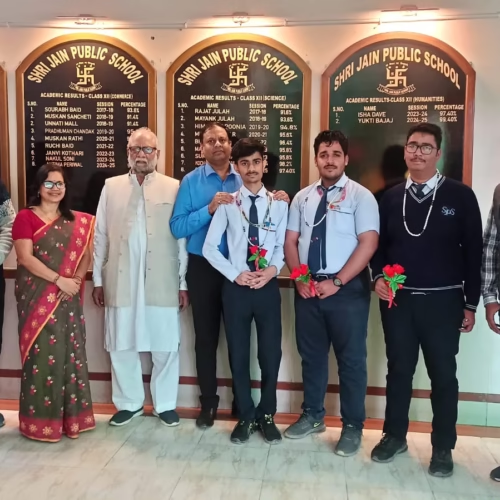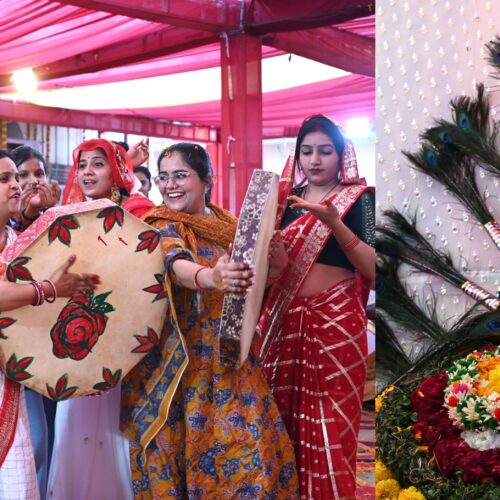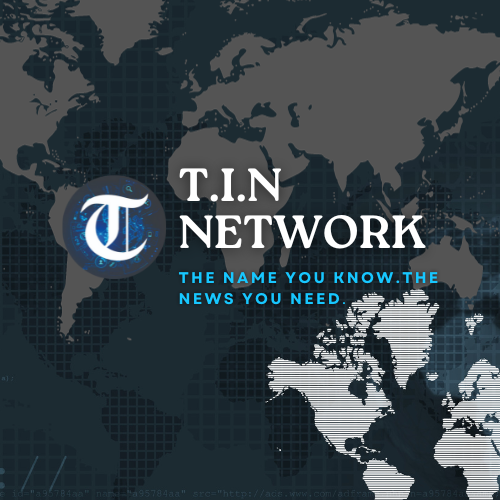BY DEFENCE JOURNALIST SAHIL | T.I.N. NETWORK
India–Russia Foreign Ministers’ Meet in Moscow: Talks on Trade Resilience, National Currencies, Defence & Global Balance
Moscow/New Delhi, August 20, 2025 –
On August 21, Russian Foreign Minister Sergey Lavrov and Indian External Affairs Minister Subrahmanyam Jaishankar will hold pivotal talks in Moscow, signaling yet another milestone in the enduring India–Russia “Special and Privileged Strategic Partnership.” According to a statement issued by the Russian Ministry of Foreign Affairs, the two ministers will engage in discussions that cover a wide spectrum of bilateral and international issues—ranging from energy and defence to banking resilience and multipolar world order.
The Russian statement emphasized that Moscow and New Delhi share a relationship built on trust and respect, and both nations are committed to strengthening dialogue through bilateral channels as well as multilateral forums such as the United Nations, BRICS, SCO, and G20.
Building Resilient Trade Mechanisms Amid Global Pressures
A highlight of the upcoming dialogue will be the emphasis on creating transport, logistics, banking, and financial chains immune to external pressures from “unfriendly countries.” This is a clear reference to Western sanctions imposed on Russia in the wake of the Ukraine conflict.
For India, this presents both an opportunity and a challenge—deepening rupee–ruble trade mechanisms, expanding national currency settlements, and insulating bilateral cooperation from external disruptions. Both sides will review the use of national currencies for trade settlement, bypassing dependence on the US dollar.
Expanding Bilateral Cooperation: Defence, Energy & Science
India and Russia are expected to discuss ways to expand cooperation in arms manufacturing, energy, agriculture, and science & technology.
- Defence: India remains one of the largest buyers of Russian-origin military equipment, ranging from S-400 air defence systems to nuclear-powered submarines. With Western pressure increasing, Russia is eager to reassure India of uninterrupted defence supplies.
- Energy: India has emerged as a key buyer of discounted Russian crude oil since 2022, with imports skyrocketing. The ministers are likely to explore long-term energy partnerships including nuclear energy projects and joint exploration ventures.
- Technology & Science: India’s push for indigenous innovation under Atmanirbhar Bharat will intersect with Russia’s offer of technology transfer, especially in areas like aerospace, quantum computing, and space research.
Strategic Alignment on Global Issues
The ministers will also coordinate their positions on pressing international issues, including:
- Ukraine Conflict – where India has maintained a careful balancing act, emphasizing dialogue over escalation.
- Afghanistan – ensuring regional stability amid Taliban resurgence.
- Israel–Palestine Conflict – where both nations have called for negotiations.
- Asia-Pacific Security – opposing hegemonic blocs, with Russia and India emphasizing multipolarity over unipolar dominance.
Lavrov and Jaishankar are also expected to prepare the ground for upcoming BRICS leadership transitions, where India and Russia have pledged mutual support.
Multipolarity as a Guiding Principle
The Russian statement underlined that both Moscow and New Delhi view multipolarity as essential for global stability. For India, which carefully balances ties with the West, Russia, and the Global South, this meeting becomes an opportunity to reinforce its independent foreign policy line—one that prioritizes sovereignty, self-reliance, and non-alignment with rigid blocs.
The Lavrov–Jaishankar meeting in Moscow represents more than routine diplomatic engagement; it is a reaffirmation of the time-tested India–Russia partnership that has survived Cold War politics, post-Soviet transitions, and the ongoing Ukraine crisis. For New Delhi, the ability to maintain close ties with Moscow while managing Western partnerships will be a central test of its strategic autonomy.
BY DEFENCE JOURNALIST SAHIL | T.I.N. NETWORK
मॉस्को में होगा भारत-रूस विदेश मंत्रियों का अहम संवाद: व्यापारिक श्रृंखलाओं की सुरक्षा, राष्ट्रीय मुद्राओं में लेन-देन और वैश्विक संतुलन पर केंद्रित बातचीत
मॉस्को/नई दिल्ली, 20 अगस्त 2025 –
रूस के विदेश मंत्री सर्गेई लावरोव और भारत के विदेश मंत्री डॉ. एस. जयशंकर 21 अगस्त को मॉस्को में वार्ता करेंगे। यह बैठक भारत-रूस के बीच दशकों पुराने “विशेष और विशेषाधिकार प्राप्त रणनीतिक साझेदारी” को और मजबूत बनाने की दिशा में महत्वपूर्ण मानी जा रही है।
रूसी विदेश मंत्रालय द्वारा जारी बयान में कहा गया कि दोनों देशों के बीच संबंध पारस्परिक विश्वास और सम्मान पर आधारित हैं और इन्हें न केवल द्विपक्षीय स्तर पर, बल्कि संयुक्त राष्ट्र, BRICS, शंघाई सहयोग संगठन (SCO) और G20 जैसे बहुपक्षीय मंचों पर भी और आगे ले जाया जाएगा।
वैश्विक दबावों से परे व्यापारिक संरचना
इस संवाद का प्रमुख बिंदु होगा – ऐसे परिवहन, लॉजिस्टिक्स, बैंकिंग और वित्तीय ढाँचे का निर्माण, जिन्हें “अमित्र देशों” से आने वाले दबाव प्रभावित न कर सकें। यह सीधे-सीधे पश्चिमी देशों द्वारा रूस पर लगाए गए प्रतिबंधों की ओर संकेत करता है।
भारत के लिए यह एक अवसर भी है और चुनौती भी—रुपया-रूबल व्यापार को मजबूत करना, राष्ट्रीय मुद्राओं में लेन-देन बढ़ाना और डॉलर पर निर्भरता घटाना।
रक्षा, ऊर्जा और विज्ञान में सहयोग
- रक्षा: भारत अब भी रूस से हथियारों का सबसे बड़ा खरीदार है। S-400 सिस्टम से लेकर पनडुब्बियों तक कई अहम सौदे दोनों देशों को जोड़ते हैं।
- ऊर्जा: 2022 से भारत रूस का प्रमुख तेल खरीदार बन गया है। बैठक में दीर्घकालिक ऊर्जा सहयोग, परमाणु ऊर्जा परियोजनाएँ और संयुक्त खोज कार्य जैसे मुद्दे चर्चा में रहेंगे।
- विज्ञान और तकनीक: अंतरिक्ष अनुसंधान, क्वांटम कंप्यूटिंग और हाई-टेक रक्षा तकनीक में भारत-रूस सहयोग की संभावनाएँ बढ़ाई जाएंगी।
वैश्विक मुद्दों पर साझा रुख
दोनों नेता विश्व के प्रमुख संकटों पर भी चर्चा करेंगे:
- यूक्रेन युद्ध – जहां भारत संवाद और शांति पर बल देता आया है।
- अफगानिस्तान – क्षेत्रीय स्थिरता की चिंता।
- इज़राइल-फिलिस्तीन संघर्ष – वार्ता का समर्थन।
- एशिया-प्रशांत क्षेत्र – एकध्रुवीय वर्चस्व के खिलाफ साझा रुख।
“बहुध्रुवीय विश्व” की साझा अवधारणा
रूसी बयान ने यह स्पष्ट किया कि भारत और रूस दोनों बहुध्रुवीय विश्व व्यवस्था को स्थिरता और संतुलन का आधार मानते हैं। भारत के लिए यह कूटनीति उस रणनीतिक स्वतंत्रता को दर्शाती है, जिसमें वह न पश्चिम के साथ पूरी तरह झुकता है और न ही किसी ध्रुवीय गठजोड़ का हिस्सा बनता है।
मॉस्को में होने वाली जयशंकर-लावरोव बैठक केवल एक कूटनीतिक औपचारिकता नहीं, बल्कि भारत-रूस संबंधों की मजबूती का प्रतीक है। यह मुलाकात दर्शाती है कि चाहे यूक्रेन युद्ध जैसी चुनौतियाँ हों या पश्चिमी दबाव, भारत-रूस साझेदारी अब भी अंतरराष्ट्रीय राजनीति के केंद्र में है।









Add Comment